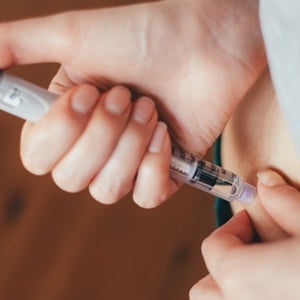
For many diabetics, one of the most dreaded aspects of managing their condition is the need to inject insulin multiple times a day. But Harvard researchers have discovered a way to deliver insulin in a pill, and it appears to work well, at least in rats.
In South Africa, 7% of adults aged 21 to 79 – 3.85 million people – have diabetes. A large proportion of these people remain undiagnosed.
According to the most recently released statistics from Stats SA, diabetes is also the second leading cause of death in South Africa.
There are however still a lot of unanswered questions about the new pill: What is the proper dose compared to injected insulin? Will it be delivered uniformly? And, the biggest, will it work as well in people as in rats?
Delivering insulin through non-invasive means
That's why more research is needed, said the study's senior author, Samir Mitragotri, a professor of bioengineering at Harvard University.
The report was published online June 25 in the Proceedings of the National Academy of Sciences.
"What we have shown is that we can deliver insulin, and that it is safe in the intestine. This would be a non-invasive, patient-friendly, easy-to-use treatment," he said.
Insulin is a hormone that helps usher the sugar from foods you eat into cells for use as fuel. People with diabetes often lack enough insulin to meet the body's needs, though the exact cause varies depending on the type of diabetes.
An oral insulin hasn't been available, because insulin gets digested in the stomach, Mitragotri said. But injectable forms, which can be delivered by a needle or through a small tube inserted under the skin and attached to an insulin pump are painful, which can lead people to skip their medication, he noted.
To develop an oral insulin, the researchers had a number of challenges. The first step in moving past these barriers was to put insulin in an ionic liquid, which Mitragotri likened to liquid salts. The insulin-ionic liquid combination was then covered with a coating that allows the pill to pass through the stomach intact. It's then dissolved in the small intestine.
From there, the oral insulin travels to the large intestine. With the help of the ionic liquids, the insulin molecules can get through the intestinal wall into the bloodstream.
Current insulins are good for about 28 days once they're out of the fridge. But the oral insulin is good for at least two months, and probably longer, Mitragotri said.
The researchers found a sustained drop in blood sugar (glucose) of up to 45 percent in the animals. "It lowered blood glucose for at least 12 hours," Mitragotri said.
More studies will need to be done, including in larger animals, before human trials could begin. But if all goes well, Mitragotri said that he expects human trials could begin in three to five years. It's hard to estimate what the cost of oral insulin might be, he added. But the ionic liquid and coating materials aren't expensive, so he expects it would be similar in cost to current insulins.
Image credit: iStock




 Publications
Publications
 Partners
Partners












